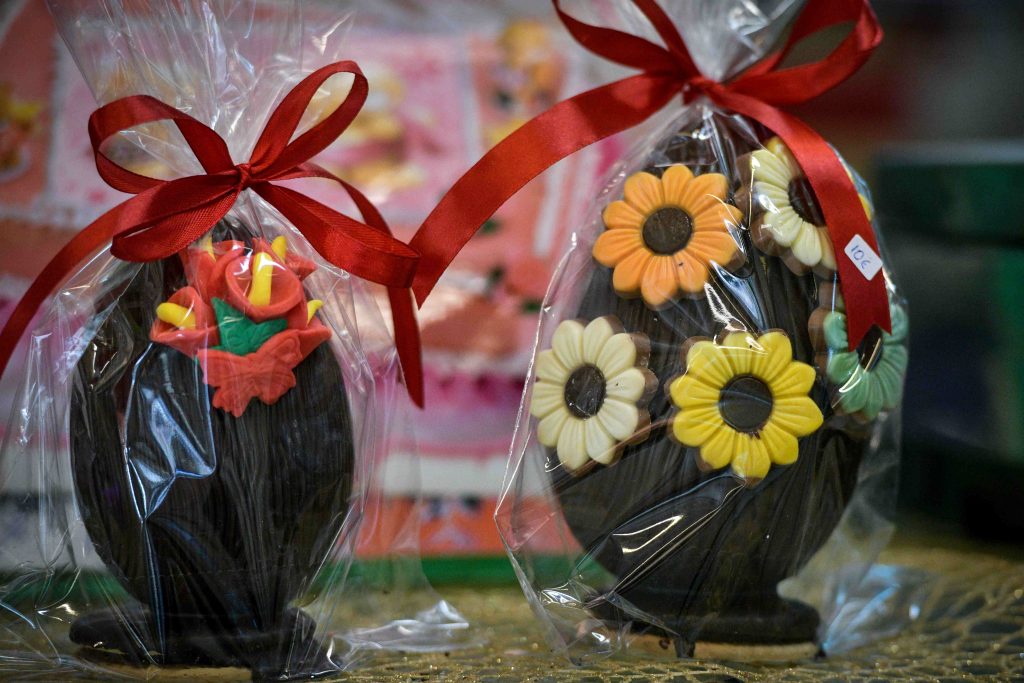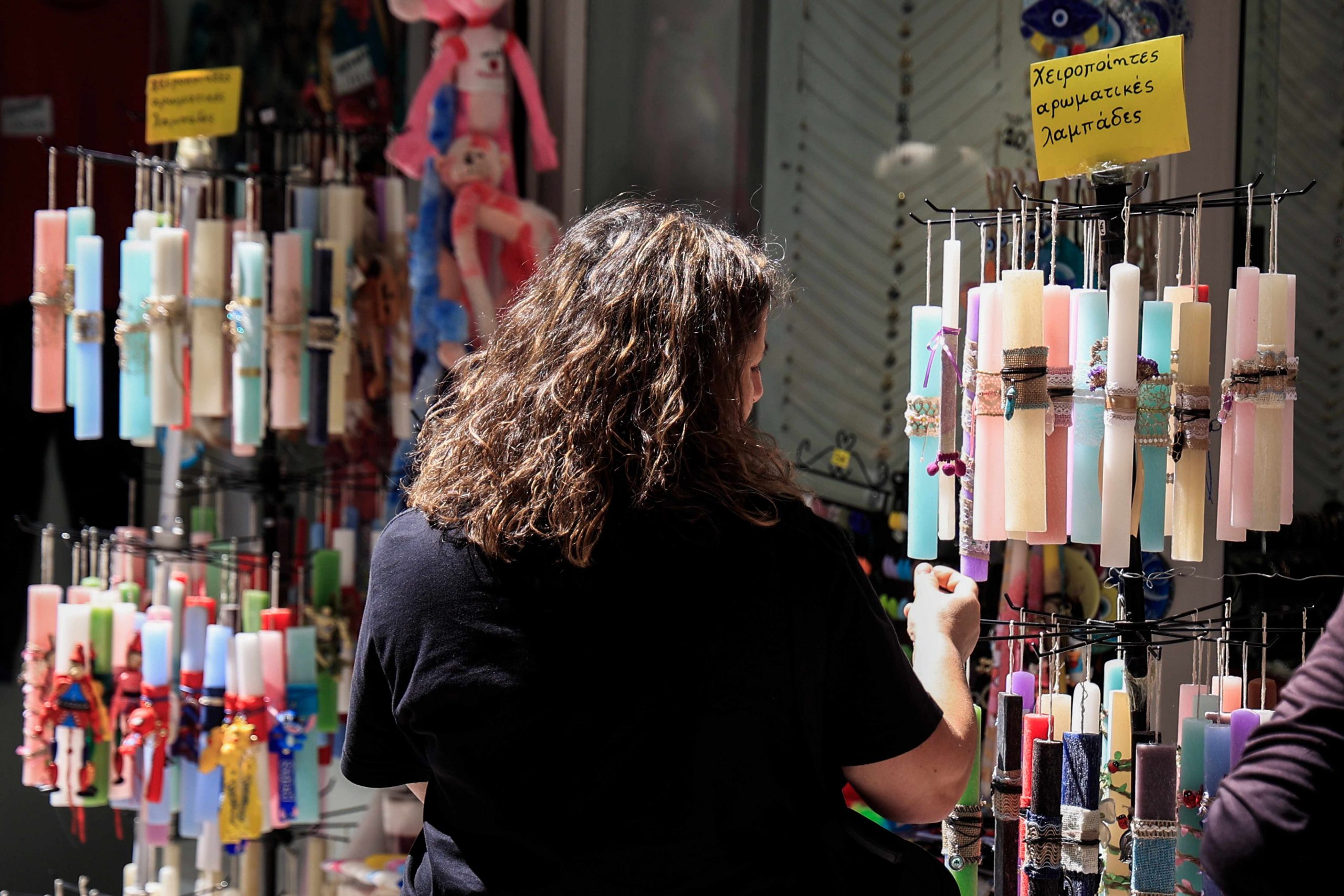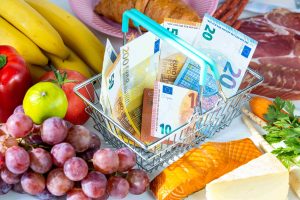With the Orthodox Easter Holy Week commencing this upcoming Monday, Greek retailers are holding onto their optimism. The President of the Piraeus Chamber of Commerce and Industry, Vassilis Korkidis, anticipates that this year’s Easter turnover will surpass last year’s figure of 1.5 billion euros.
Korkidis emphasized that this year’s holiday period, including travel and hospitality services, is expected to be reflected in May’s statistics, and all signs point to a surpassing of last year’s numbers. With Orthodox Easter falling within the summer tourist season, the influx of international tourists should be taken into account.
As May 1 approaches, the deadline for employers to deposit Easter bonuses, the market is expected to pick up pace during Holy Week. A recent study by “Greece’s Retail Consumer Goods Research Institute” (IELKA) reveals that fifty-three percent of Easter shoppers plan to do their shopping during this period.
Tomorrow, Sunday, April 28, stores will observe holiday opening hours, remaining open from 11 a.m. to 4 p.m.
In Greek supermarkets, consumer traffic has surged following the introduction of two initiatives by the Greek Development Ministry: the “Godparents’ Basket” and the “Easter Basket.” The latter, along with the preceding Lenten Week Basket, complements the already existing “Household basket” initiative by incorporating four Easter goods into the list of products offered at fixed prices in supermarkets, thereby making them more accessible to low-income families. These four products include lamb meat, goat meat, Tsoureki (Greek Sweet Bread), and Easter chocolate eggs among other delicacies.
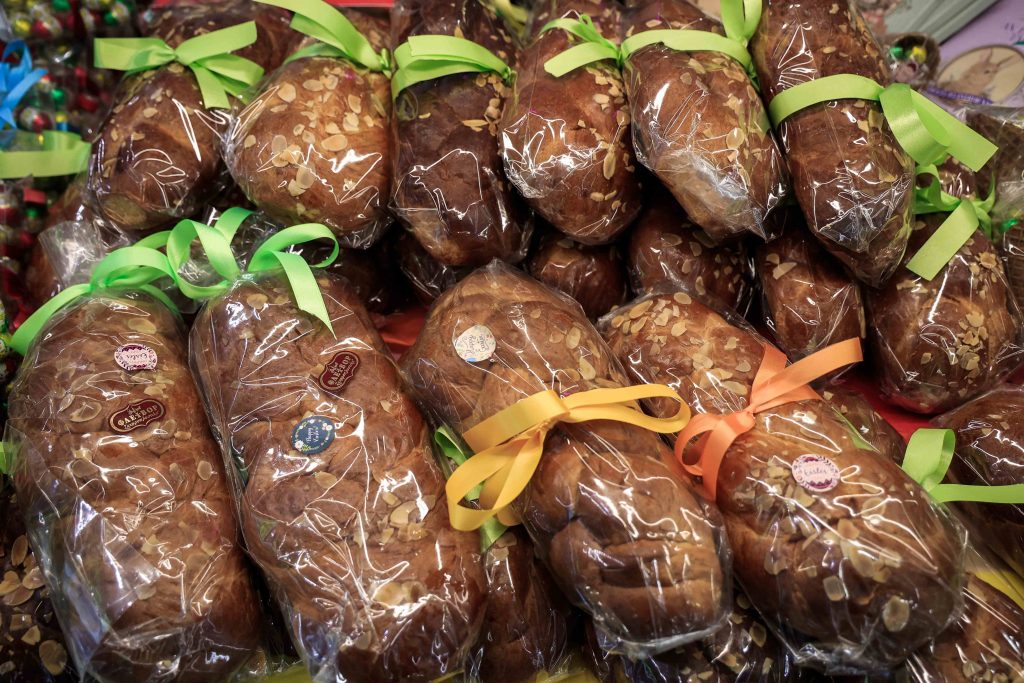
The Godparents’ Basket offers a wider range of products such as gifting toys, chocolates and children’s clothing, traditionally gifted by godparents during Easter.
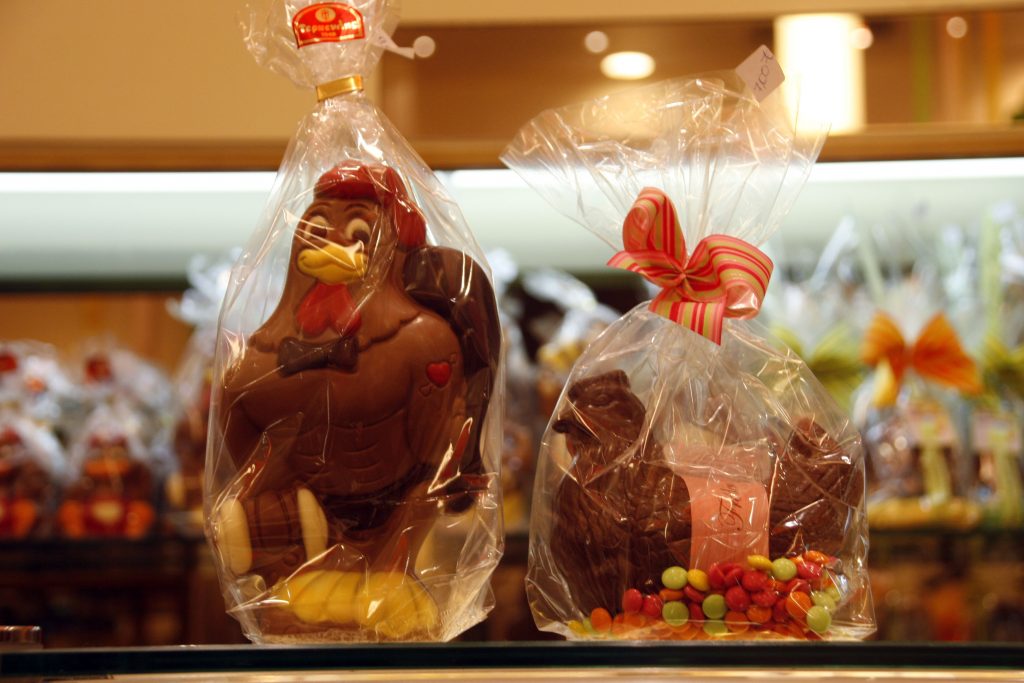
All three measures, Godfather’s Basket, Easter Basket and Lenten Week Basket will remain effective until May 4.
Lamb and Goat Meat Prices
The price of lamb meat in supermarkets remains steady compared to last year, just below 10 euros per kilogram with prices ranging from 9.78 to 9.99 euros per kilogram. Meanwhile, goat meat, slightly pricier than lamb, ranges from just below 10 euros to 10.99 euros per kilogram.
However, the price cap set by the Ministry of Development on lamb and goat meat, highly sought-after during the festive season due to the Easter tradition of roasting lamb on a spit, has stirred tensions and disagreements within traders and professionals in the stock farming sector, owing to high production costs and reduced livestock.
